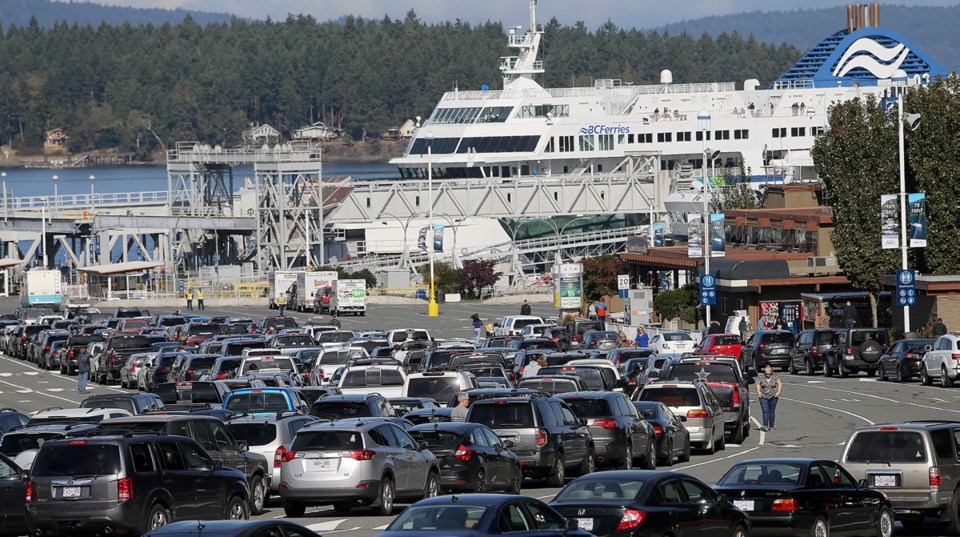 It was only two or three lines in when Transportation Minister Claire Trevena’s announcement started to sound hauntingly familiar.
It was only two or three lines in when Transportation Minister Claire Trevena’s announcement started to sound hauntingly familiar.
A review of B.C. Ferries to see if it meets the needs of users. Check.
One that will “identify improvements” to the current model. Check.
Special attention to “ferry users and communities who depend on this essential service.” Check.
Glancing through the playbook of moves governments have made over the years on ferries, this one looks a lot like what the B.C. Liberals ordered up seven years ago.
They asked independent ferry commissioner Gord Macatee to review the legislation under which the system runs. The 2011 report covered the act and much more, as it delved into all facets of the operation and came up with two dozen recommendations. Most of them revolved around the financial-sustainability crisis the system was in.
The Liberals, who renounced their earlier pledge to stop the “political interference” in the ferry system, started meddling with abandon. There was a wrenching series of cutbacks on minor routes that drew sustained outrage from coastal communities. But there was also eventually an $87-million boost to the government’s contribution to the ferry budget.
Combined with cost-cutting and an increase in ridership due to a strong economy, the ferry corporation’s books started to look better. It’s gone two years now with just a two per cent fare hike, on just the major routes.
But the huge fare increases and service cuts that led up to that turnaround still rankle people. So the NDP’s election-campaign platform included promises to roll back fares on smaller routes by 15 per cent, freeze the major-route fares and restore the free weekday rides for seniors while it reviewed cost structures.
Trevena started that review on Friday. It’s mildly confusing to have plans locked into place well before a review to look at new plans even starts. What if the reviewer, former deputy minister Blair Redlin, decides the fare policy and the free rides aren’t a good idea?
Here’s a free tip to Redlin: Don’t go there.
They are firm commitments that are made directly to Trevena’s base — Quadra Island and points south and north — so they look to be going ahead regardless.
They’re also very popular ideas coast-wide, even though there is an economic argument to be made against the fare cut. Traffic is up enough at B.C. Ferries to warrant discussion of commissioning an additional new ship, over and above the $2 billion worth of replacement ships that are in the works.
The higher revenues coming in could be used to pay for a good chunk of that new vessel. If they are cut back by fare reductions, that just means B.C. Ferries has to borrow more money to build.
But the political considerations make that an entirely academic argument.
Coastal residents are in a happy, or at least happier, place right now. The upcoming review is aimed squarely at addressing the “significant concerns relating to the affordability of the service, B.C. Ferries policies and service levels.”
That means that any ideas involving raising more money won’t involve the riders. So taxpayers at large will have to pay for them. Just as commuters south of the Fraser River got their tolls off-loaded onto the taxpayer-at-large, ferry users will likely enjoy the prospect of having any future revenue requirements handled by the province as a whole.
The one limit on that theme is that bringing B.C. Ferries back under direct government control isn’t on the table.
That leaves its sizable debt load off the government books.
The terms of reference call for a look at whether services are being provided in a manner that supports the public interest in affordable fares. It will also look at whether the complicated price-cap system works for all B.C., in particular people who depend on the essential service.
In all the arguments over fare hikes, the NDP in opposition always used to say B.C. Ferries “should be part of the highway system.” It sounded vague, but the meaning is becoming clear. It stands for government shielding riders and relying on the rest of B.C. to help cover any new costs that arise.



